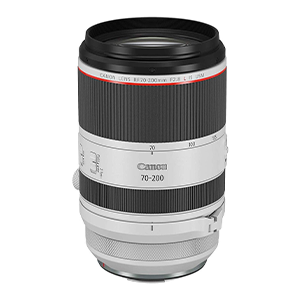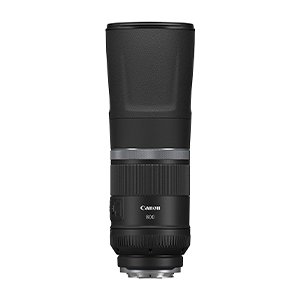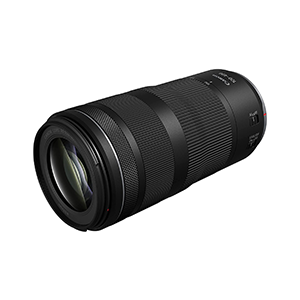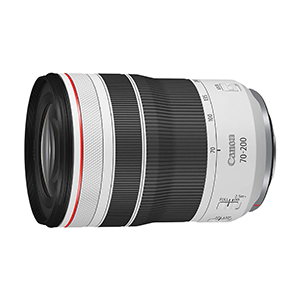As an affiliate, we may earn a commission from qualifying purchases. We get commissions for purchases made through links on this website from Amazon and other third parties.
Are you eager to enhance your photography skills? Unlocking the full potential of your craft begins with acquiring the finest Canon telephoto lens.
Whether you specialize in sports or wildlife photography, a telephoto lens is an indispensable tool in your kit. It empowers you to capture even the most distant subjects while preserving intricate details. With this lens, your images remain consistently sharp and detailed, all without the need to physically approach your subject.
Telephoto lenses come in a diverse range, starting from 70mm and stretching well beyond 80mm. The array of choices can be overwhelming, especially for first-time buyers like yourself. However, we’ve taken the initiative to simplify the process.
In this comprehensive review guide, dive into detailed assessments of the top 10 Canon telephoto lenses available in the market. Additionally, explore the accompanying buying guide to receive further assistance in making your selection.
Best Canon Telephoto Lenses Reviews
1. Canon RF 70-200mm F2.8 L is USM Lens
Sports photography can present formidable challenges, particularly when you’re stationed at the farthest reaches of a court or field. To conquer these obstacles, a top-tier telephoto lens proves to be a game-changer. Among our Canon telephoto lens recommendations, the RF 70-200MM USM telephoto lens shines as the ultimate choice for several compelling reasons.
First and foremost, it boasts a lightweight and compact design, making it remarkably user-friendly. Whether you’re embarking on photography expeditions or covering events, you can tote it along without being encumbered.
What truly sets this lens apart is its ability to capture striking, high-quality images thanks to its wide f/2.8 aperture. Regardless of challenging lighting conditions or distant subjects, this lens consistently delivers exceptional performance, ensuring you’re never disappointed.
Compatibility is another strong suit, as it seamlessly integrates with all Canon full-frame mirrorless cameras. Its silent and smooth autofocus, combined with outstanding image stabilization, minimizes unwanted blurriness in your shots. The only drawback to note is that it lacks compatibility with any teleconverter currently available on the market.
The Canon RF 70-200mm F2.8 L IS USM Lens is a remarkable telephoto zoom lens that delivers outstanding image quality, portability, and advanced features. Whether you’re a professional photographer looking for top-tier equipment or an enthusiast eager to elevate your photography game, this lens is a valuable addition to your kit. With its optical image stabilization, rapid autofocus, and versatility, it empowers you to capture breathtaking moments with precision and clarity, no matter the shooting conditions.
Pros:
- Lightweight and compact
- Produces high-quality results
- Perfect for full-frame cameras
- Provides excellent stabilization
Cons:
- Not compatible with teleconverters
2. Canon RF800/11 is STM(N)
If you’re in pursuit of the best Canon telephoto lens that offers exceptional value, the Canon RF800/11 IS STM(N) lens might just be the ideal choice for you. Boasting an 800-millimeter focal length, a rarity at this price point, Canon has delivered an impressive option that won’t break the bank.
This lens combines sharpness with a lightweight and compact form factor, making it a versatile companion for your photography endeavors. It doesn’t compromise on image stabilization and autofocus capabilities either. What’s more, it’s compatible with teleconverters, enhancing its versatility. The lens incorporates gap-less diffractive optics, effectively reducing chromatic aberration to consistently yield superior image quality.
However, it’s essential to acknowledge a couple of limitations. The lens thrives when provided with ample light for optimal autofocus performance. Regrettably, it lacks weather sealing, rendering it unsuitable for use in rainy conditions. Despite these drawbacks, it remains a strong contender, particularly for wildlife photographers who appreciate excellent value.
One of the most critical aspects of super telephoto photography is combating camera shake, especially when working with long focal lengths. The Canon RF800/11 IS STM(N) addresses this challenge with its optical image stabilization technology. It offers up to 4 stops of shake correction, ensuring that your images remain sharp and steady, even in less-than-ideal shooting conditions.
The Canon RF800/11 IS STM(N) redefines the possibilities of super telephoto photography. It combines extreme reach with outstanding portability, thanks to its innovative extending/retracting design. With gapless double-layer diffractive optics, fixed f/11 aperture, and optical image stabilization, this lens delivers exceptional image quality and ensures that your telephoto shots are sharp and vibrant. Whether you’re a wildlife enthusiast, an astrophotographer, or a sports photographer, this lens empowers you to capture distant subjects with precision and ease.
Pros:
- Outstanding value for money
- Compact and lightweight design
- Compatible with teleconverters
- Excellent image stabilization
Cons:
- Lacks weather sealing
- Requires ample light for optimal performance
3. Canon RF 100-500mm F4.5-7.1 L is USM
If you’re in the market for a premium-quality Canon telephoto lens and budget is not a limiting factor, the Canon RF 100-500mm F4.5-7.1 L stands as an excellent choice. Premium items often come with a higher price tag, and this lens is no exception.
This lens has the potential to transform your wildlife photography aspirations into reality. Its remarkable versatility is matched by outstanding image stabilization, providing superior shake correction. You can leverage its three stabilization modes to infuse creativity into your photographic results.
The lens incorporates dual Nano USM technology, enhancing autofocus performance with smooth, quiet, and high-speed focusing, ensuring exceptional outcomes on every occasion. Additionally, it features a control ring, enabling you to conveniently adjust exposure settings to suit your preferences.
While some may find fault with its relatively slow aperture, it’s important to note that this lens isn’t hindered by light constraints and offers full focus capabilities. Its performance and handling excel, making it a fitting choice for handheld photography and surpassing its predecessors.
The Canon RF 100-500mm F4.5-7.1 L IS USM lens is designed to work seamlessly with Canon’s Full Frame Mirrorless Cameras, including the EOS RP, EOS R, EOS R5, and EOS R6. This compatibility ensures that you can fully harness the capabilities of both the lens and the camera, resulting in outstanding image quality and performance.
The Canon RF 100-500mm F4.5-7.1 L IS USM lens is a versatile super-telephoto zoom lens that empowers photographers to capture distant subjects with precision and creativity. Whether you’re a professional seeking top-tier equipment or an enthusiast eager to explore the world of telephoto photography, this lens delivers exceptional results.
Pros:
- Highly versatile lens
- Equipped with three stabilization modes
- Outstanding autofocus capabilities
- Convenient exposure adjustment
Cons:
- Comparatively slow aperture
4. Canon RF100-400mm F5.6-8 is USM
One of the primary challenges associated with Canon telephoto lenses is their steep price point. Regrettably, not everyone’s budget permits the investment in a high-priced lens. If you find yourself facing this predicament, our recommendation may provide a viable solution. Enter the Canon RF100-400mm F5.6-8 IS USM telephoto lens, a wallet-friendly option that shatters the cost barrier while upholding quality and performance.
This lens boasts a host of exceptional features that underpin its high-quality performance. Firstly, it flaunts a lightweight and compact design, making it conveniently portable for on-the-go photography. Moreover, its impressive zoom range of 100–400 mm caters to a wide spectrum of photographic needs, delivering an all-encompassing photography experience.
Enhanced image stabilization aids in shake correction, while Canon’s Nano USM technology elevates autofocus precision with smooth and discreet operation. As a budget-friendly choice, it does, however, forgo advanced weather-proof sealing and features a relatively slow aperture.
Nevertheless, these drawbacks are offset by the lens’s lightweight and diminutive form, making it a suitable choice for beginners and photographers on a tight budget. While it may not rank among the top-performing lenses on the market, it unquestionably caters to a specific niche.
Canon’s Nano USM technology ensures that autofocus is not only high-speed but also exceptionally smooth and quiet. Whether you’re photographing wildlife in its natural habitat or documenting a sports event, this lens ensures that your subjects come into focus quickly and discreetly.
The Canon RF100-400mm F5.6-8 IS USM lens is a compact and versatile telephoto zoom lens that empowers photographers to capture distant subjects with ease. Its combination of optical image stabilization, compatibility with IBIS-equipped cameras, minimum focusing distance, and Nano USM autofocus makes it a valuable tool for a wide range of photographic styles and situations.
Pros:
- Budget-friendly lens
- Lightweight and compact design
- Excellent image stabilization
- Portability enhanced by its small size
- Suitable for beginners
Cons:
- Slow aperture
- Lacks weather-proof sealing
5. Canon RF70-200mm F4 L is USM
Our recommendation presents the smallest full-frame lens in Canon’s arsenal, characterized by its lightweight build and remarkable sharpness. When fully collapsed, this lens is remarkably compact, akin in size to a soda can. However, its diminutive stature does not hinder its performance, as it competes favorably with many high-end and bulkier counterparts.
The Canon RF70-200mm F4 L IS USM telephoto lens boasts an impressive 7.5 stabilization stops, granting it versatility across various shooting scenarios. Its exceptional center and optical sharpness consistently elevate the quality of your results. While corner sharpness may leave something to be desired, diligent practice can mitigate this limitation.
Enhanced by dual Nano USM technology, this lens delivers exceptional autofocus capabilities. Whether you’re focusing on your subject up close or at a distance, it ensures quiet and smooth operation without requiring undue effort.
In summary, this lens is a noteworthy inclusion on our list. However, it is important to note that it lacks compatibility with teleconverters, which may be a source of frustration for some users.
When paired with Canon cameras featuring In-Body Image Stabilization (IBIS), the Canon RF70-200mm F4 L IS USM lens unlocks even greater stability. This coordinated optical image stabilizer and IBIS combination provides up to an astonishing 7.5 stops of shake correction. You can push the boundaries of low-light and telephoto photography, capturing stunning images with ease.
The Canon RF70-200mm F4 L IS USM lens is a groundbreaking telephoto zoom lens that combines portability with uncompromising image quality.
Pros:
- Smallest full-frame lens with outstanding performance
- Impressive number of stabilization stops
- Consistently delivers optical sharpness
- Exceptional autofocus capabilities
Cons:
- Not compatible with teleconverters
- Corner sharpness may be lacking
Final Word
A telephoto lens can significantly enhance your photography skills, enabling you to capture distant subjects and zoom in on details that might challenge your standard lens. If you’re passionate about wildlife or sports photography, investing in a telephoto lens is well worth it to achieve your desired results.
Among the lenses we’ve reviewed, our top recommendation is the Canon RF 70–200mm F2.8 L telephoto lens. It stands out for its compact and lightweight design and exceptional image stabilization.
For those on a tighter budget, our second favorite option is the Canon RF100–400mm F5.6-8. However, the ultimate decision rests with you, so best of luck in choosing the lens that best suits your needs.





